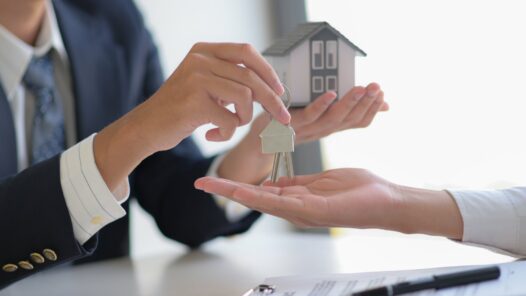Shared ownership – Staircasing your way up the property ladder
Shared Ownership offers first time purchasers and those that do not currently own a home the opportunity to acquire a share in a brand-new development or resales residential or commercial property.
The buyer pays a mortgage on the share they own, and pays rent to a housing association on the remaining share. Due to the fact that the buyer just requires a mortgage for the share they are purchasing, the amount of cash needed for a deposit is normally a lot lower when compared to the amount that would be required when purchasing outright.
The buyer has the potential to increase their share throughout their time in the residential or commercial property by means of a process referred to as ‘staircasing’, and in many cases can staircase all the way to 100%. In this instance, the shared owner will no longer pay any rent, simply their mortgage along with any service charges and ground rent.

You could purchase a home through Help to Buy: Shared Ownership in England if:
- Your household makes ₤ 80,000 a year or less outside London, or your family makes ₤ 90,000 a year or less in London
- You are a a first time buyer, a person who no longer owns a home or a person in a shared ownership property looking to move.
With Shared Ownership, you can purchase a recently constructed home or an existing one through resale programs. You’ll need to secure a mortgage for your share of the home’s purchase price, or fund this through your savings. Shared Ownership homes are always leasehold.
Only military workers will be given top priority over other groups through the scheme and local authorities may also set their own priority groups. Due to high demand and little resource.
People with disabilities
Home ownership for people with long-term disabilities can assist you purchase any house that’s for sale on a Shared Ownership basis. You can only make an application for this if the residential or commercial properties offered through the other home ownership plans do not meet your needs, eg you require a ground-floor home.
Older people
You can also get help from another scheme called Older People’s Shared Ownership if you’re aged 55 or over.
It works in the same way as the basic Shared Ownership scheme, but you can only buy up to 75% of your house. As soon as you own 75% you will not need to pay rent on the remaining 25%.

By buying the remaining part of the property and then selling the property as a whole. You may find this financially beneficial but you would have to judge that. However, you may have to pay Stamp Duty Land Tax (SDLT) – see below for details
There may be clauses in the lease, which could enable the Housing Association to restrict the sale price to an independent valuer’s valuation or to choose prospective buyers to ensure that the property stays a Shared Ownership Scheme. These clauses are rarely enforced.










